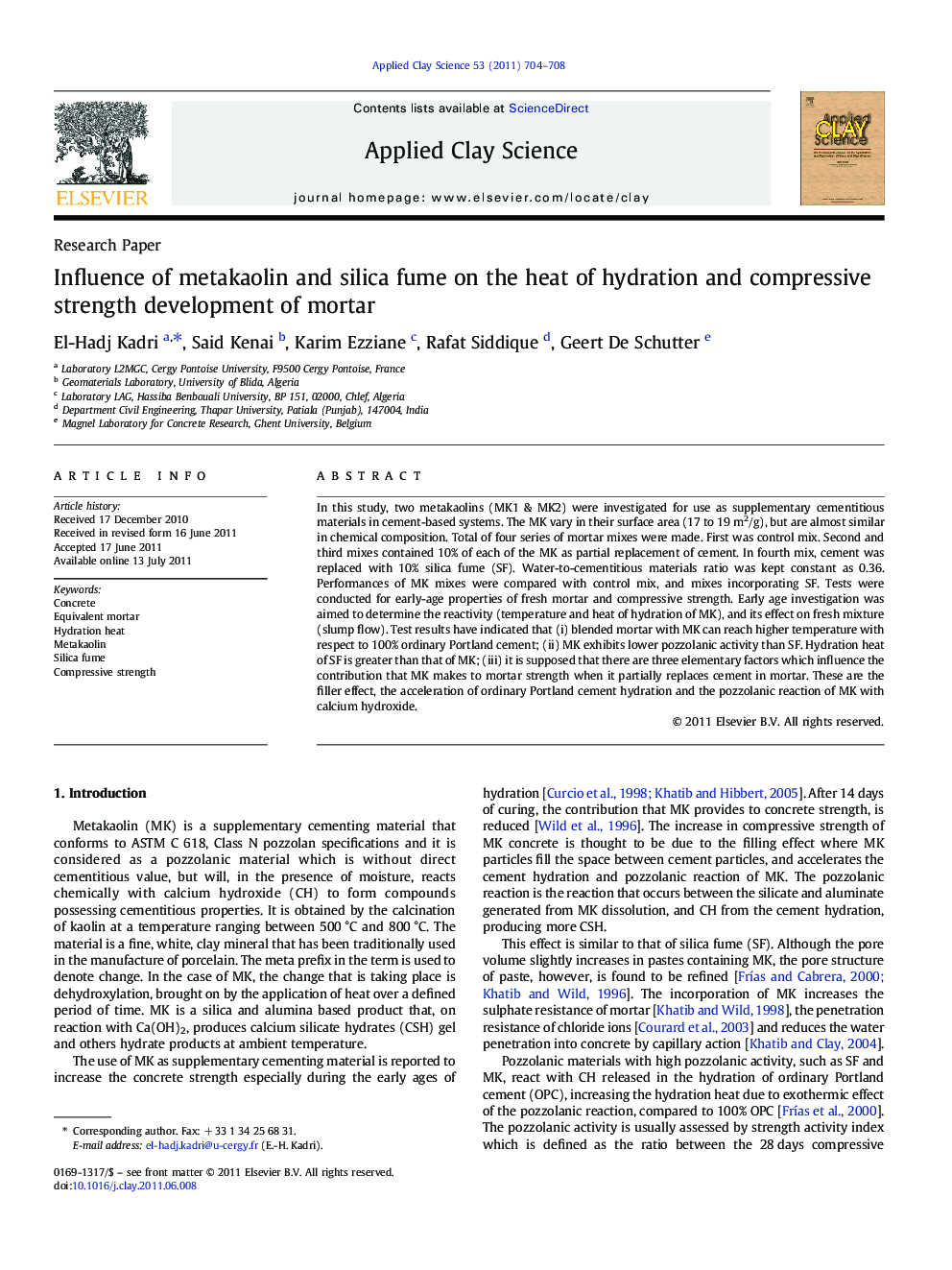| Article ID | Journal | Published Year | Pages | File Type |
|---|---|---|---|---|
| 1695430 | Applied Clay Science | 2011 | 5 Pages |
In this study, two metakaolins (MK1 & MK2) were investigated for use as supplementary cementitious materials in cement-based systems. The MK vary in their surface area (17 to 19 m2/g), but are almost similar in chemical composition. Total of four series of mortar mixes were made. First was control mix. Second and third mixes contained 10% of each of the MK as partial replacement of cement. In fourth mix, cement was replaced with 10% silica fume (SF). Water-to-cementitious materials ratio was kept constant as 0.36. Performances of MK mixes were compared with control mix, and mixes incorporating SF. Tests were conducted for early-age properties of fresh mortar and compressive strength. Early age investigation was aimed to determine the reactivity (temperature and heat of hydration of MK), and its effect on fresh mixture (slump flow). Test results have indicated that (i) blended mortar with MK can reach higher temperature with respect to 100% ordinary Portland cement; (ii) MK exhibits lower pozzolanic activity than SF. Hydration heat of SF is greater than that of MK; (iii) it is supposed that there are three elementary factors which influence the contribution that MK makes to mortar strength when it partially replaces cement in mortar. These are the filler effect, the acceleration of ordinary Portland cement hydration and the pozzolanic reaction of MK with calcium hydroxide.
► Use of metakaolin as partial replacement of cement in mortar. ► Heat of Hydration of cement mortar with varying percentages of MK. ► Compressive strength of mortar containing MK and its comparison with silica fume.
